Supplemental Services
Supplemental Services

Some schools provide supplemental services such as tutoring and educational therapies to ESA+ students, in addition to services provided as part of the regular school day and covered by tuition and fees.
Requirements for Schools
Beginning with the 2024-2025 school year, schools that are paid for supplemental services by parents using ESA+ funds must register with SEAA as Providers.
Schools that accept ESA+ funds for these supplemental services will be required to submit a signed School and School Employee Provider Agreement that certifies the employees are credentialed.
The required credentials are as follows:
a tutor or teacher must have a teaching license or a bachelor’s degree
providers of educational therapies must hold a credential appropriate to their field.
Resources
Later this spring, SEAA will offer training to further explain the process of registering your school as an ESA+ service provider. In the meantime, you can view a sample agreement and Frequently Asked Questions below. Note that this provider agreement is separate from the Nonpublic School Agreement signed by Direct Payment Schools.
- Employees who are directly providing teaching or tutoring services must have an active or inactive teaching license from North Carolina or another state, OR have a bachelor’s degree.
- Employees who are directly providing educational therapies must have a license appropriate for their field.
No. By signing the agreement, the HDMA will warrant that the employees are credentialed. Schools may be asked to submit a copy of the credentials at a later date.
No. This agreement applies to school employees who are directly providing tutoring or educational therapies to students whose parents are paying for the services with ESA+ funds.
No. This is a separate process from the Nonpublic School Agreement. Schools must sign the Nonpublic School Agreement to receive direct payments from SEAA.
School and School Employee Agreement – Reference Copy
